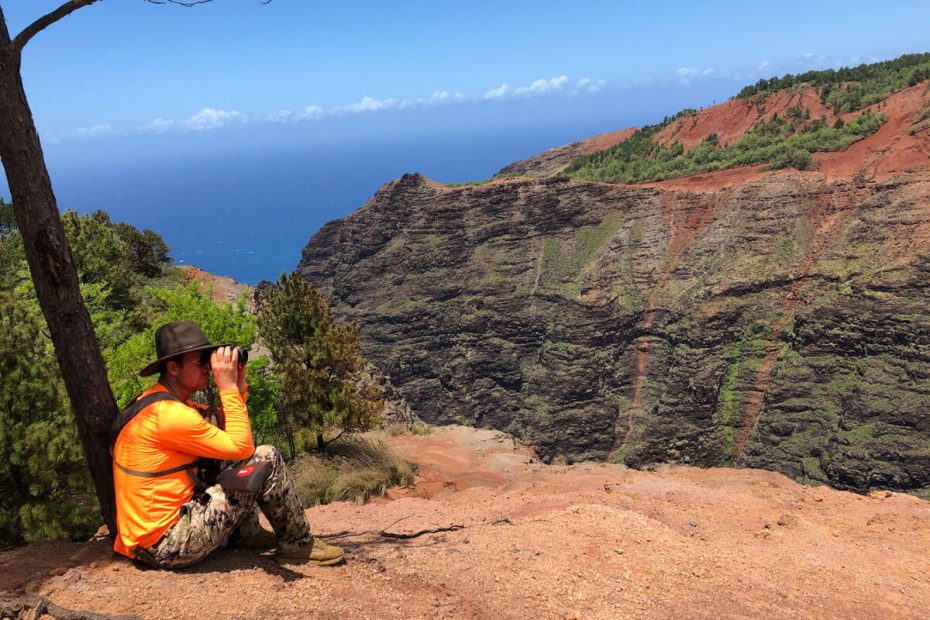

A traveling hunter is presented with an easy shot at his elusive quarry – but only at the risk of his own life. Should he take the shot?
Dawn broke crisply over the island, illuminating its cliffs in shades of impossibly lovely green. The thunder of waves pounding those same cliffs rose from several thousand feet below as I wrapped myself around a [track-link url=”https://www.spr-ar.com/r/4345″ campaign=”January_21_TakeTheShot” target=”_blank”]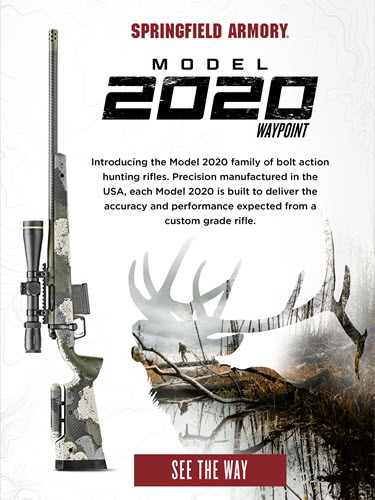 [/track-link]granola bar for breakfast. The afternoon before, I’d hiked several miles to access this remote location, searching for feral Hawaiian goats to hunt. I’d found some too, feeding and capering about the cliffs as dusk obscured the landscape. I tucked in beneath a big evergreen and slept the night away, dreaming of my morning rendezvous with the cliff-dwelling goats. Now, crunching the last crumbs of my granola-bar breakfast, I was ready to hunt.
[/track-link]granola bar for breakfast. The afternoon before, I’d hiked several miles to access this remote location, searching for feral Hawaiian goats to hunt. I’d found some too, feeding and capering about the cliffs as dusk obscured the landscape. I tucked in beneath a big evergreen and slept the night away, dreaming of my morning rendezvous with the cliff-dwelling goats. Now, crunching the last crumbs of my granola-bar breakfast, I was ready to hunt.
Following a narrow ridgeline, I stalked the cliff-tops. The dirt was a dark magenta underfoot. Waterfalls cascaded from distant green cliffs, making their way toward the valley floor and the sea beyond. It felt like I was hunting in paradise until I looked over the cliff edge at the dizzying depths below. Then it felt like I was walking a tightrope above hell.
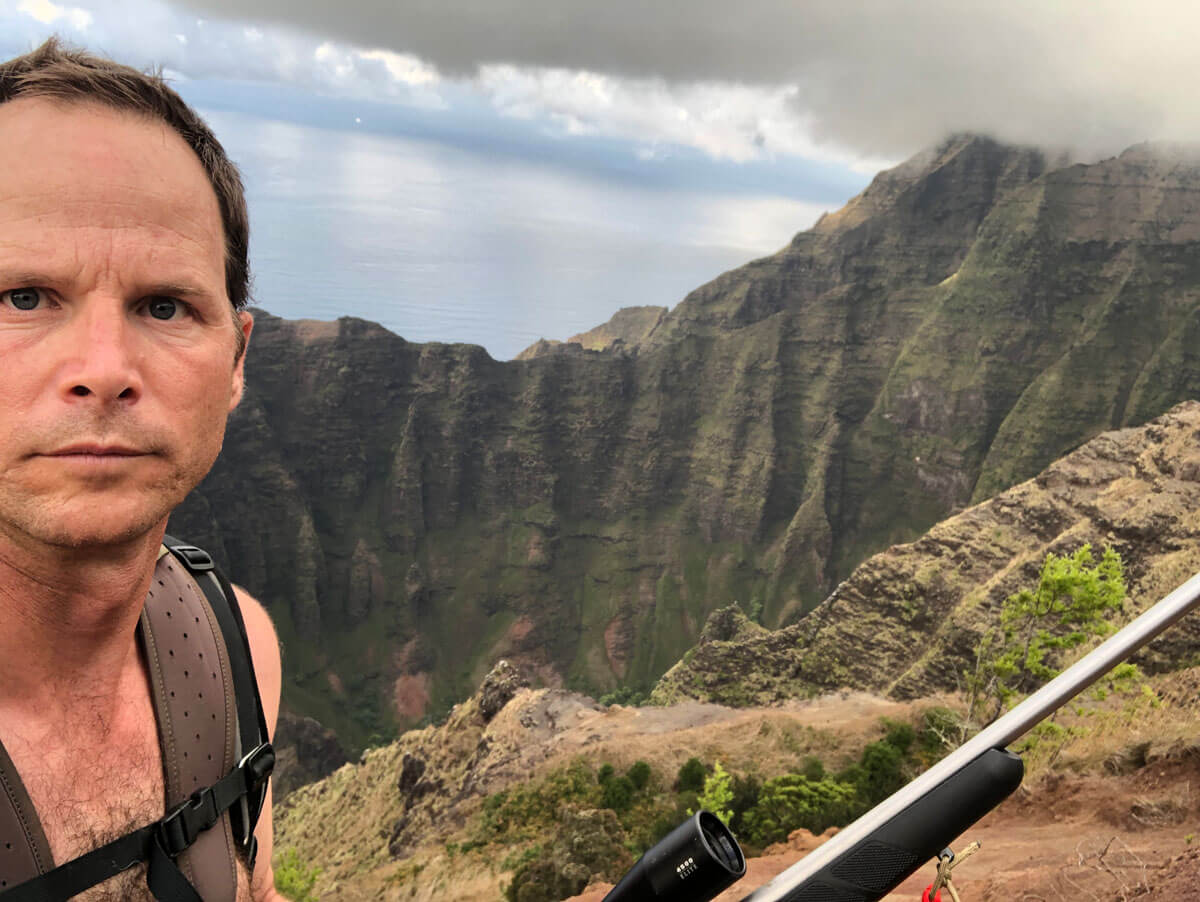
Now, I’m not afraid of heights and have spent my share of hours working on barn rafters and windmill motors high above the soil. But this kind of drop-off was new to me. I’m not super comfortable standing atop several thousand feet of elevation comprised of nothing but air. Staring into the hazy depths below gave me a discombobulating sense of lost balance and distant panic.
Jerked back from my depth-gazing reverie by the cheerful sound of goats bleating, I moved along the cliff tops until I could see the area the sounds emanated from. Soon I spotted a brown and white nanny with a big white kid, both feeding along the base of a ribbon cliff a couple of hundred yards below my position. I could harvest two goats with my current license, but hoped to take a billy; a young one if possible so the meat would be good. I continued to study the mountainside through my binocular. There, higher in the cliffs and closer to my position was a good billy. I dropped into a prone position, rested my rifle across my pack, and found him in the scope. He was standing quartered away from me, watching something in the distance. The shot was easy, the goat undisturbed. I picked up my rangefinder and hit the button: 135 yards. I looked at the cliffs. “There”, I told myself, “I think I could get down through that little slide, then edge across that ledge and drop through two little ribbon cliffs to the goat’s position”. I looked back at the little slide, the first part of the descent, and got a sick feeling in my stomach. It was steep smooth granite covered with pea gravel and funneled off the top of an enormous cliff. I could probably make it, though. I looked back through my scope at the goat, now feeding amongst the green.
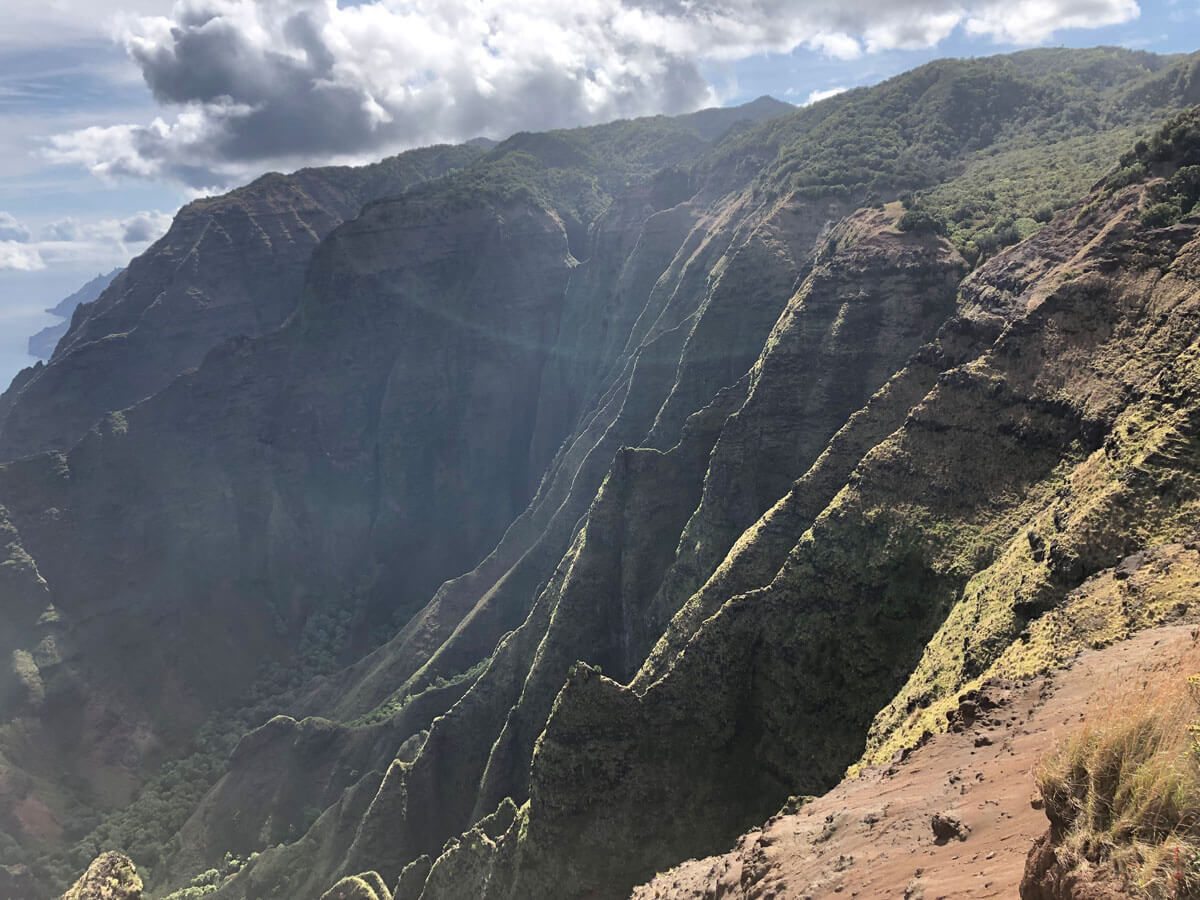
Another goat moved across the cliffs; also a billy. He was even closer to my position, though further down the cliffs. I could probably get to him too, though one goat was all I wanted to pack over those rugged miles back to my truck. I looked back at the cliffs. A pair of lightweight, strap-on crampons; the ones mountain climbers fasten to their boots when crossing glaciers, would sure be handy right now. Those, and three hundred feet of climbing rope. I snuggled in behind my rifle, found the topmost billy in my scope, and settled the crosshairs on his vitals.
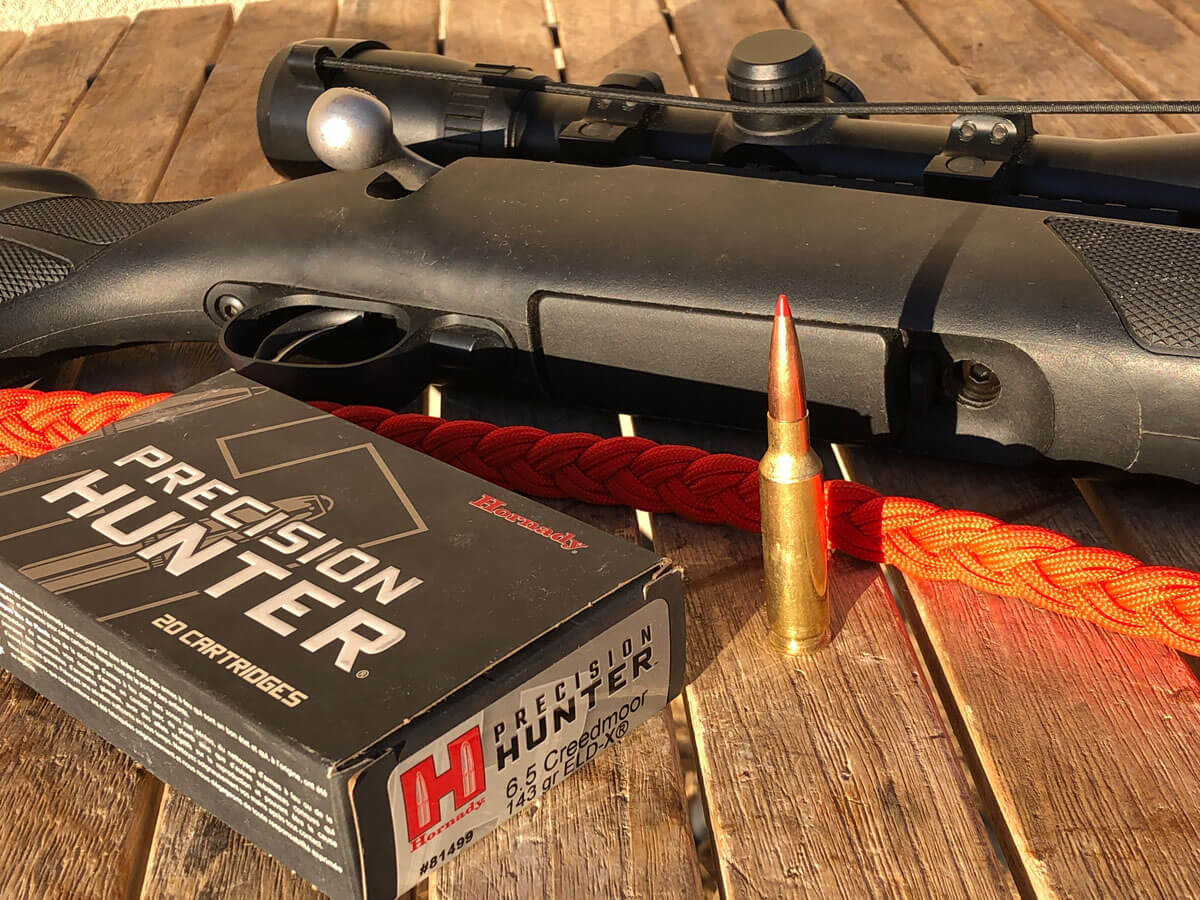
RIFLE, OPTIC, AND AMMO
The salt and sand of Hawaii are not the place to take a really expensive rifle, so I’d brought a simple lightweight stainless-steel bolt-action chambered in 6.5 Creedmoor. The riflescope was simple as well, a 4-16X40 Bushnell 4500 Elite. I couldn’t dial the scope for distance, however, there were gradated stadia lines in the reticle that enabled me to hold for accurate shots out to about 450 yards. In retrospect, a scope with a bit less magnification on the low end, say 2-12 power, would have been better. Shots can be very close when stalking through the jungle, and lower magnification would provide a better field of view at very close ranges.
My ammunition was Hornady’s excellent Precision Hunter ammo, topped with their 143-grain ELD-X projectile. Exiting the muzzle of my 20-inch barrel at about 2650 feet per second, it provides plenty of medicine for the goats that call the islands home.
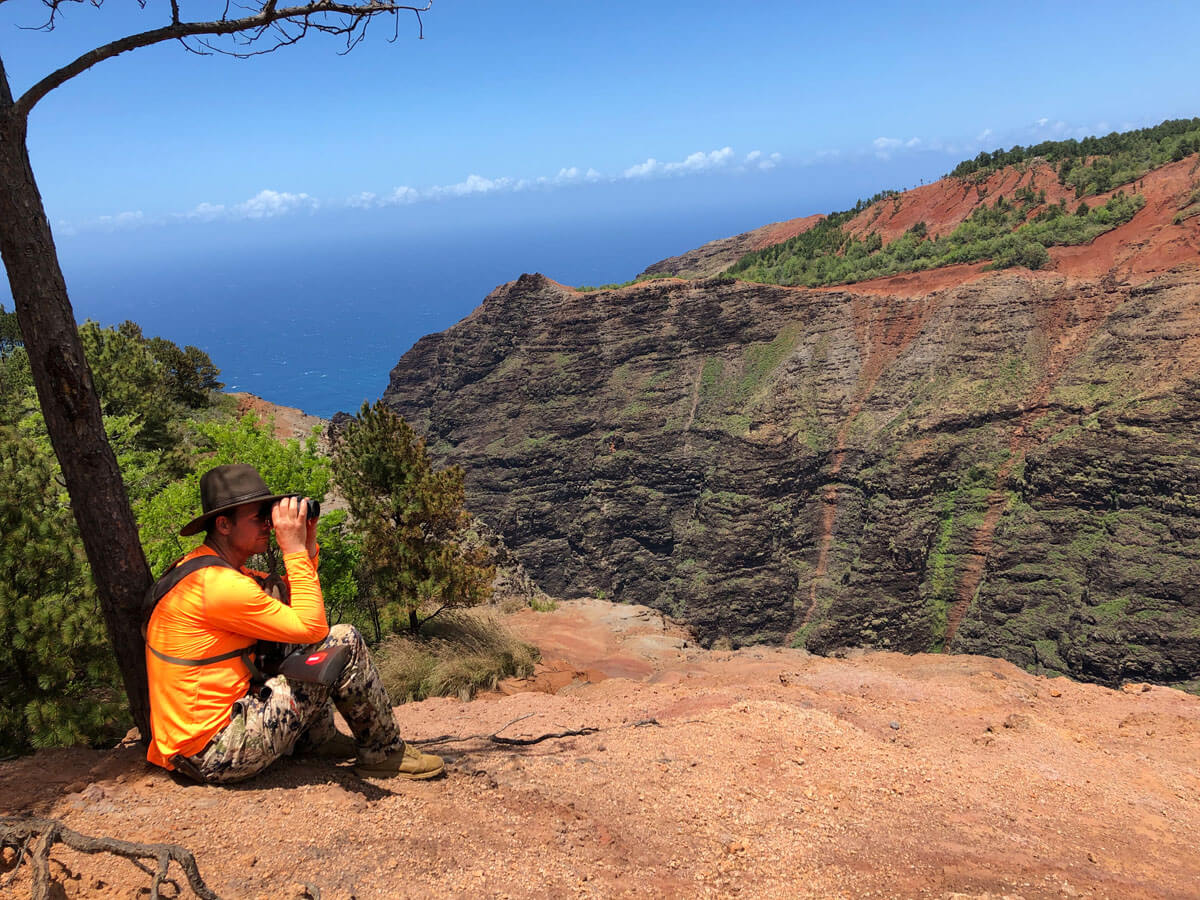
SHOOT OR DON’T SHOOT?
Place yourself in my shoes; you’ve flown across the pacific, rented a truck, driven around the island, hiked miles into the backcountry, slept under a tree, and now you finally find yourself staring through your scope at a good opportunity to kill a nice goat. It’s almost a chip shot, and you’re very confident you can drop the goat cleanly.
But you don’t know if you can retrieve the goat after you shoot it.
Even if you are able to reach the goat, climbing back up through the cliffs with the meat in your pack will be incredibly dangerous. And if you fail – if you make even one misstep, the consequence will be death at the bottom of those giant cliffs.
Are you going to take the shot? Let me know what you’d do in the comments section below.
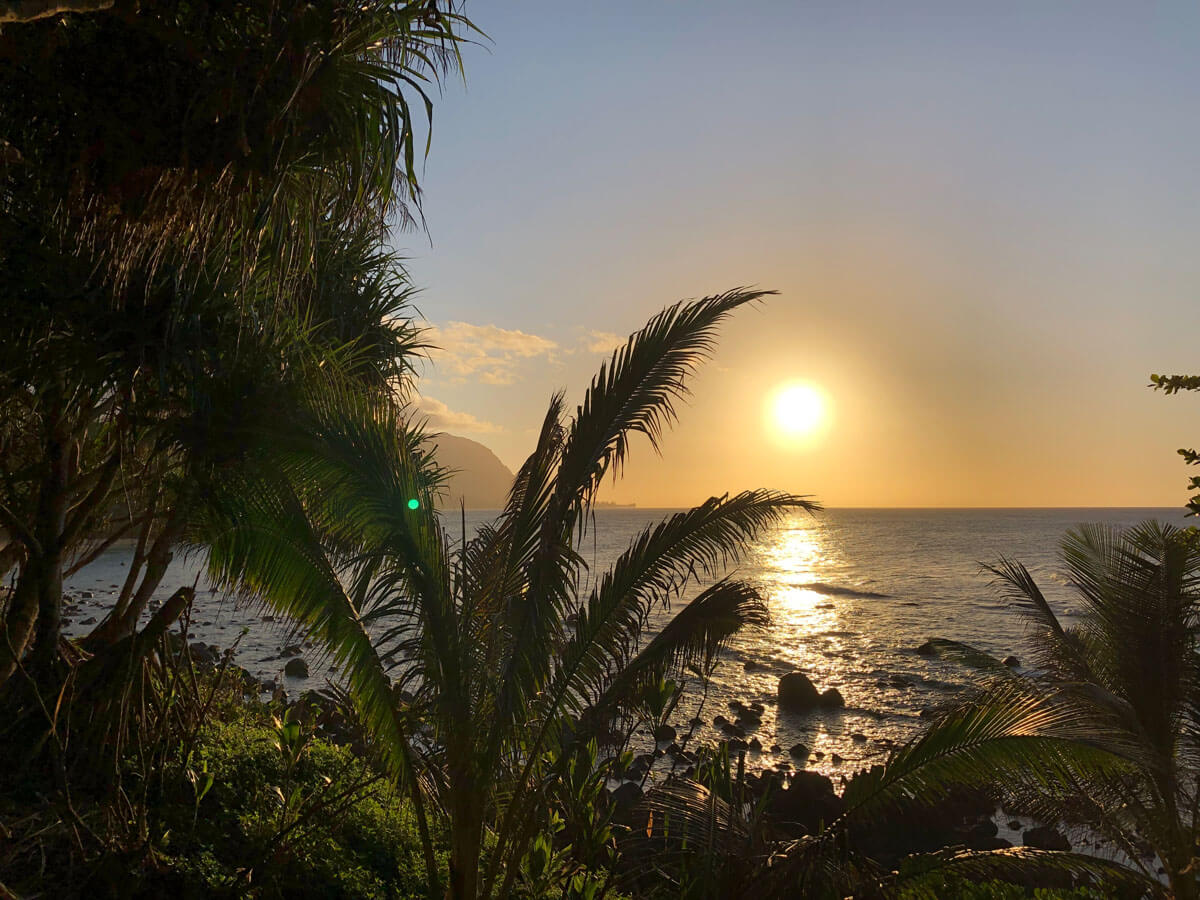
HERE’S WHAT HAPPENED (TRUE STORY)
I lay there watching those goats through my crosshairs for thirty minutes or more. Finally, I switched the safety to the on position and slipped away along the cliff tops in the hope of finding other goats in a more retrievable position. I found more goats, but never where I could safely access them. My time spent, I shouldered my pack and headed for the truck. It was an awesome hunt, in a spectacularly beautiful place.
And I was still alive.
